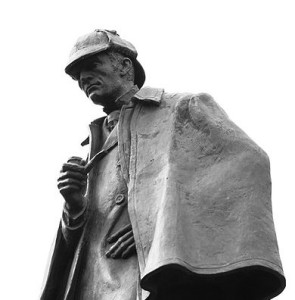Dealing with Apparent Contradictions: Part 12 – Rational Reinterpretation and theologians
Most theologians, even ones who focus on the Trinity, seem completely uninformed about important work in philosophical theology.
Most theologians, even ones who focus on the Trinity, seem completely uninformed about important work in philosophical theology.
Is “monarchical trinitarianism” theologically viable?
I see trends in this analytic theology literature somewhat towards relative identity theories, and towards “metaphysical madness.”
Here’s a quick guide to including this blog and podcast in your social media life: Want to see links to new trinities posts on Facebook? Like the Trinities Community on Facebook. Or follow me. Better yet: join the Group for fans of the podcast. Or go ape and do all three! 🙂 Use Google+? If you add me to one of your “Circles” there,… Read More »keep up with trinities on social media
Brian Leftow is recognized as one of the most important living Christian philosophers. Formerly of Fordham University in NYC, he now holds the prestigious Nolloth Chair of the Philosophy of the Christian Religion at Oriel College, Oxford. See Trent Dougherty’s comments here for a list of some of his publications. In person, Leftow is very pleasant and interesting, and his sense of humor also comes… Read More »Leftow 1: “Anti Social Trinitarianism”

Last time we highlighted one problem with Resolution through Rational Reinterpretation – often, only a metaphysician could love the new-fangled (but precise and seemingly consistent) version of the Doctrine in question. A second concern is that many believers think this “new version of” the Doctrine just ain’t that doctrine at all, but a knock-off – something similar, but different, and moreover, not genuine.
Consider these pronouncements of the First Vatican Council of 1869-70:
…that meaning of the sacred dogmas is ever to be maintained which has once been declared by holy mother church, and there must never be any abandonment of this sense under the pretext or in the name of a more profound understanding.Read More »Dealing with Apparent Contradictions: Part 9 – Rational Reinterpretation, cont.
Who needs the Bible when you can gesture at some philosophical speculations?
Richard Swinburne is one of the greatest living Christian philosophers, who has made immense contributions to philosophy of religion and philosophical theology. It is only idolatry of the past that prevents people from seeing him as great a Christian intellectual as Origen, Augustine, Aquinas, or Leibniz. In my view, he’s plainly a better, clearer, more well-rounded philosopher than any of them. “A prophet is honored… Read More »Is God a Self? – Part 7 – Swinburne
What is “mere” social trinitarianism, and why is it controversial among trinitarian theologians?
Before going into objections to “Trinity Monotheism”, I thought it’d be a good idea to say a bit more about their long, meaty chapter in which they (eventually) set out their own theory, in this book. This’ll take a couple of posts, and we’ll allow time for discussion between them. Theologians in particular should find a lot to chew on here;they’re pretty out of step with the theological world on these issues, as we’ll see.Read More »Trinity Monotheism part 2: their set-up, part 1
A deep dive on divine attributes, processions, and “social” trinitarianism.
 As pretty well summarized here by unitarian Theophilus Lindsey.
As pretty well summarized here by unitarian Theophilus Lindsey.
In the year 1694 began the great contest concerning the Trinity, betwixt two celebrated doctors of the church, Sherlock and South; each of them reputed and reputing himself orthodox, and each of them espoused by learned and powerful partisans.
Dr. Sherlock expressly asserted, that the three persons in the Trinity are three distinct, infinite Minds or Spirits, and three individual Substances. Dr. South held only one infinite eternal Mind or Spirit, with three Somethings that were not three distinct Minds of Substances, but three modes, faculties, attributes, relations, relative properties, subsistances, as there were variously denominated. Dr. Sherlock was accused, and with great justice, if words have any meaning, of polytheism, or holding three Gods. Dr. South, on the other hand, came under the imputation of explaining away the Trinity, and falling into the Sabellian or Unitarian system: and accordingly some of the Socinians took advantage of the Doctor’s explication of the doctrine of the church, and declared in their writings, that the should not be backward to give their approbation to the Liturgy and the Articles, if that was the kind of Trinity which the language therein used was intended to inculcated.
The university of Oxford, to whom Sherlock was obnoxious on account of his political principles, declared forRead More »the fate of “social” trinitarianism in late 17th c. England (Dale)
 Was Hippolytus a trinitarian or a unitarian? In the last two posts, I’ve argued that he was the latter.
Was Hippolytus a trinitarian or a unitarian? In the last two posts, I’ve argued that he was the latter.
In the most recent translation of his Against Noetus, though, the translator thinks he is a trinitarian. He entitles this section, “The three Persons of the Trinity are One God”. (p. 74) Is he right? Here’s the passage, pretty much the whole chapter:
Well then, brethren, all this is what the Scriptures point out to us. This economy that blessed John, too, passes on to us through the witness of his Gospel, and he maintains that this Word is God… [John 1:1]
But then, if the Word, who is God, is with God, someone might well say: “What about this statement that there are two gods?” While I will not say that there are two gods – but rather one – I will say there are two persons; and that a third economy is the grace of the Holy Spirit. For though the Father is one, there are two persons – because there is the Son as well: and the third too, – the Holy Spirit. The Father gives orders, the Word performs the work, and is revealed as Son, through whom belief is accorded to the Father. By a harmonious economy the result is a single God. Read More »trinitarian or unitarian? 11 – a trinitarian passage in Hippolytus?
Thinking about Trinity in grad school, reading Richard Swinburne’s The Christian God.
In my recent paper on the Trinity (discussed by Dale and I here and here) I distinguish two ways a thing can meet sufficient conditions of personhood. One way is to behave, function, or perform in such a way as to meet those conditions. So if a robot or group, for example, became morally responsible or rational in virtue of function alone, it would thereby… Read More »Yet More Theories of the Trinity

The more you think about hard stuff, the more opinions you get. I’ve taught philosophy of religion, modern philosophy, logic, and metaphysics courses, and so I have some fairly developed views. Based on theoretical (and non-theological considerations), here are some things I don’t believe in, because I think they’re impossible:Read More »Dealing with Apparent Contradictions: Part 11 – One last problem for Rational Reinterpretation
“What bothers me most is the rhetorical move you’re making with this claim that everyone before Nicea (or so) was a ‘Unitarian.'”
Dallas Willard’s The Divine Conspiracy – its effect on my thinking.

J.P. Moreland is a well-known and prolific Christian philosopher and apologist, as well as a Willardite writer on spiritual formation.
Back around 1992-3 I was privileged to take a few classes with him as an undergraduate at Biola. He’s a hard working, straight shooting, and forceful person, yet with an obvious spiritual side. I’ve read and profited from a lot of his stuff. Not that I can keep up!
Is God a person? Watch Moreland’s interview here (blue button) then, click here for my take –>Read More »Is God a Self? Part 4 – J.P. Moreland